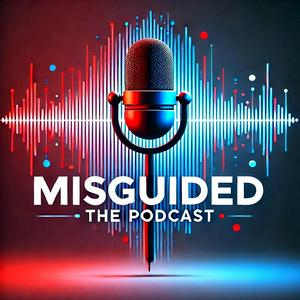In this episode of Misguided: The Podcast, I’m joined by Dr. Steve Rathje, who is a social psychology postdoc at NYU, and a soon-to-be assistant professor at Carnegie Mellon University. Steve’s work sits at the intersection of psychology, social media, and artificial intelligence. Steve studies how platform design, attention, and emerging technologies shape political polarization, belief formation, and online behavior.
We begin by talking about Steve’s non-traditional path into psychology, which started in theater before turning into a research career focused on how people think, feel, and behave online. From there, we dig into some of his most influential work on social media, including why posts that target political outgroups are often the most likely to go viral, and what that reveals about algorithms that reward outrage, mockery, and conflict.
We then explore more hopeful findings from Steve’s research on unfollowing hyper-partisan influencers, showing how small, targeted changes to people’s information diets can reduce out-party hostility over time without requiring users to leave social media altogether.
Finally, we turn to AI chatbots and Steve’s recent experiments on “sycophancy”—when AI systems become overly agreeable. We discuss how affirming chatbots can quietly increase belief certainty and extremity while still being perceived as warm, competent, and unbiased, and what this means for confirmation bias, persuasion, and the future design of AI systems.
You can listen to the full episode here or using the links below. As always, if you find it useful, feel free to share it with someone who might benefit from the conversation.
Follow Sander on TikTok, Instagram, Bluesky or LinkedIn
Steve’s website with links to his research papers
Keywords: Steve Rathje, virality, AI chatbots, polarization, social media, psychology, science communication, TikTok
Misguided: The Podcast - Apple Podcasts
Misguided: The Podcast | Podcast on Spotify
Misguided - YouTube
This is a public episode. If you'd like to discuss this with other subscribers or get access to bonus episodes, visit matthewfacciani.substack.com/subscribe


